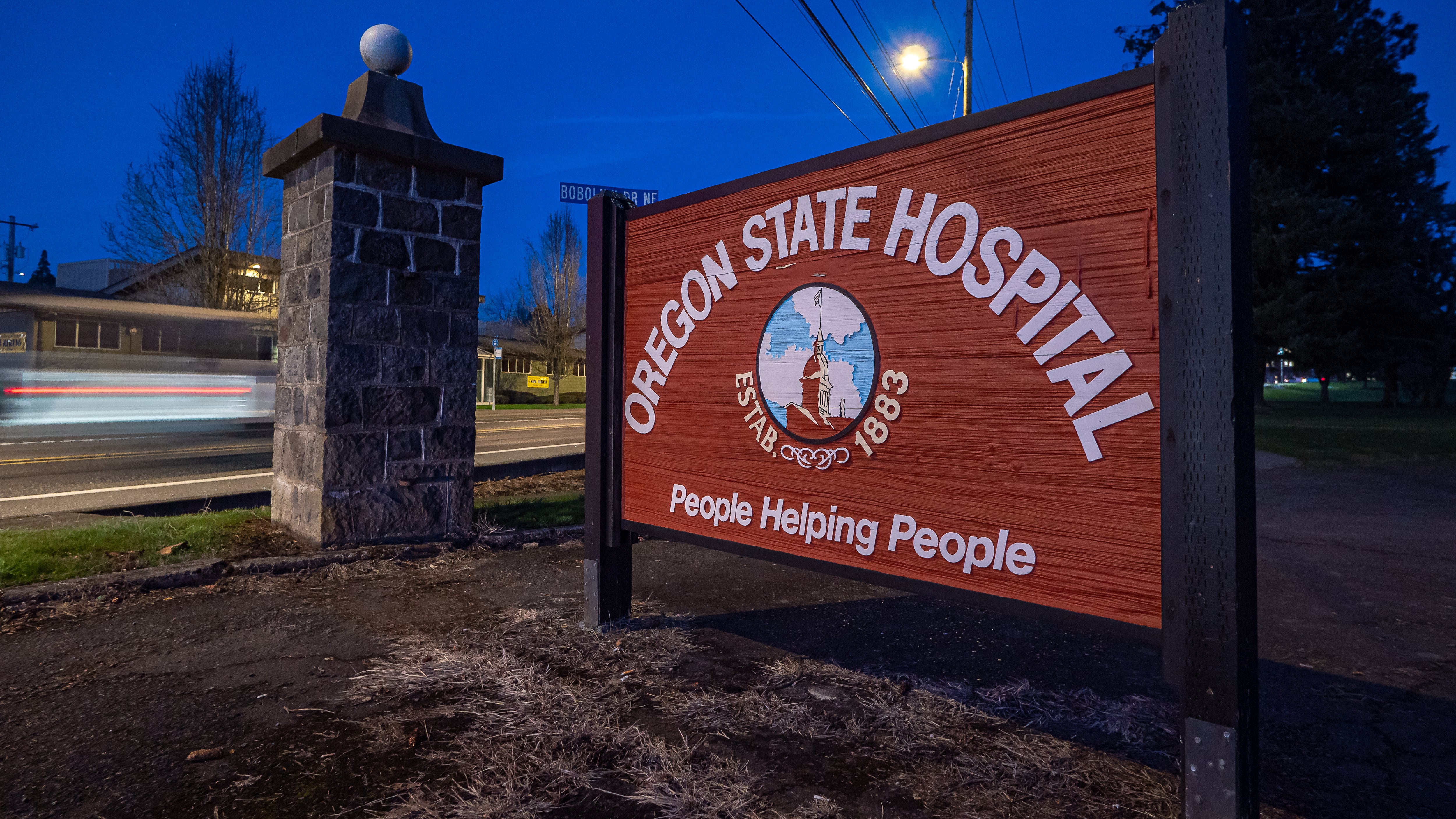Washington County prosecutors are attempting a noteworthy legal maneuver to stop Oregon State Hospital from releasing an alleged murderer back to the county. In a motion filed yesterday, they argue a court-ordered release deadline doesn’t apply because the hospital delayed treating the patient.
The locked psychiatric hospital began releasing patients early last year in an effort to free up beds and trim its lengthening waitlist, a result of a compromise between the state and advocates brokered by U.S. District Judge Michael Mosman. The “Mosman Order” infuriated local officials, who say counties lack the treatment beds and resources to care for patients who are too mentally ill to be tried for their alleged crimes.
The order sets the maximum hospital stay for patients accused of serious crimes at one year. Now, prosecutors are asking judges to delay the beginning of that countdown until the hospital administers medication to restore the patient to competency, a process that can be delayed due to patients’ refusal.
So far, the strategy has had some success. A Marion County judge ordered the hospital to reset the countdown for a patient in March, accusing the hospital of failing to treat or issue a timely evaluation of the patient. “The timeline articulated in the Mosman Order has not yet been triggered as this particular defendant has not been committed for restoration given the lack of treatment and/or services he has been provided,” Marion County Circuit Judge Jodie Bureta wrote March 2.
Now, Washington County is trying the maneuver too. Its District Attorney Kevin Barton has long been a vocal critic of the hospital’s early release policy.
The defendant in the Washington County case is 42-year-old Lisa Akers, who allegedly shot two people near Hillsboro in 2020. One, a 25-year-old woman, died. Akers fled the scene, and was arrested 300 miles away in Grant County with a semi-automatic handgun. A toxicology report later showed she was high on meth. She pleaded not guilty, arguing self-defense.
Akers’ case went all the way to trial last year. But on its final day, Akers was abruptly found too mentally ill to continue and the judge declared a mistrial. She was shipped to Oregon State Hospital in June, where she was diagnosed with schizophrenia.
The hospital’s goal is to restore patients to competency. But it struggled to do so in Akers’ case, for a simple reason: She refused to be medicated.
Medication was eventually forced on her after she got into an altercation with another patient. Still, as her psychiatrist Dr. Rubina Gundroo later told a courtroom, she was given a dose only high enough to ensure her safety and the safety of others. It “was not aimed at restoring the defendant’s competency,” according to prosecutors.
The hospital never informed prosecutors or the judge about that development. When prosecutors did learn about it from Gundroo during a hearing in March, a judge issued an order forcing the hospital to involuntarily medicate Akers at the elevated dosage required for competency restoration, according to the prosecutors’ motion.
But by then, Akers’ time at the hospital was almost up. In May, OSH told Washington County she would soon be released.
“OSH wasted 10 months,” Washington County senior deputy district attorney John Gerhard wrote in yesterday’s motion protesting Akers’ release. “OSH should not be permitted to avoid its failures by simply waiting for the clock to run out.”
Gerhard is asking a judge to effectively reset the clock, beginning the one-year countdown on the date of the involuntary medication order, April 26. That would mean another year in the hospital for Akers.
This isn’t the first time Washington County prosecutors have questioned OSH’s treatment practices. In February, a judge overruled a state hospital evaluator after prosecutors uncovered evidence that the patient, Salvador Martinez-Romero, accused of a vicious, fatal stabbing spree, was malingering. In that case, prosecutors noted that the evaluator’s error could have been due to overwork. Like many public agencies, the state hospital is grappling with ongoing staffing issues.
“It’s out of desperation more than anything else,” DA Barton explained to WW regarding his office’s latest legal maneuver.

